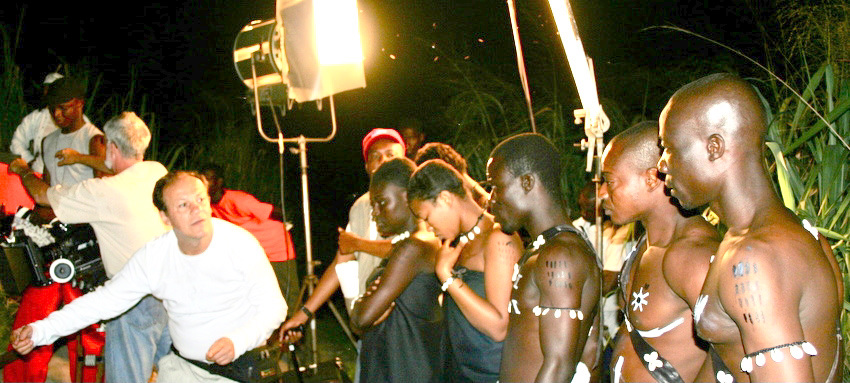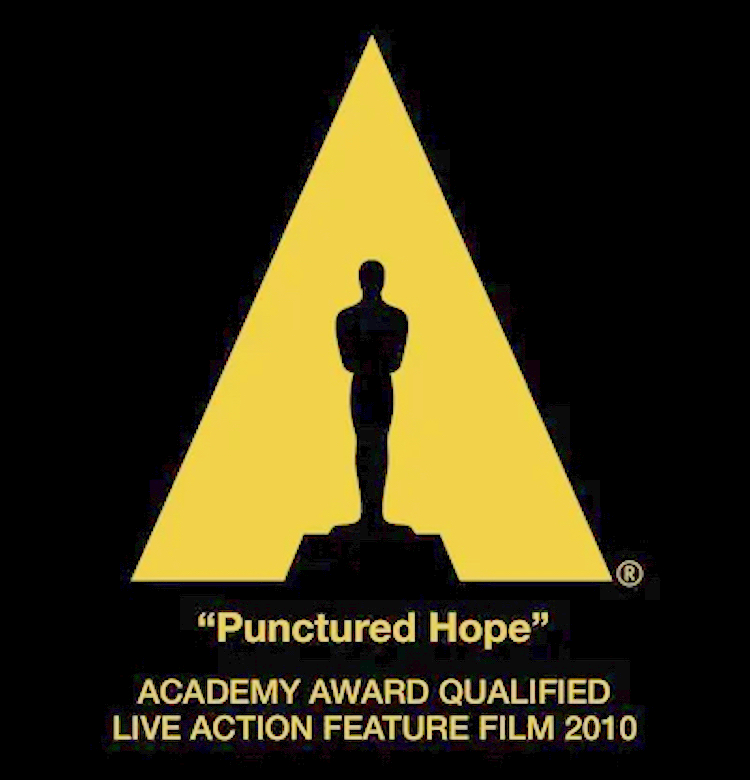By Bruno Pischiutta

We filmmakers must not forget that we know nothing more than the viewers, and that our task is only to provide information and let the viewers draw their own conclusions.
Los Angeles, CA (February 18, 2024). In this article I base my observations on my personal experience, not only as a filmmaker but also as an artistic consultant, for the past 12 years, at the Global Nonviolent Film Festival that will run its 13th annual edition this year. Throughout this time, I have had the opportunity to watch all the films received by the Festival, those selected and all the others, and to understand how filmmakers often confuse ‘political film’ with ‘propaganda film’ and do not differentiate between these products. All this made me think of my last feature film, an iconic movie I shot in sub-Saharan West Africa, which I dedicated to the memory of my mother, and which dealt, among others, with the theme of female genital mutilation, Trokosi, and a certain type of slavery that still exists today. I thought about that film and what someone from Amnesty International said about it. But, let’s go in order.
Best known as Punctured Hope, the complete title of the film is: PUNCTURED HOPE: A STORY ABOUT TROKOSI AND THE YOUNG GIRLS’ SLAVERY IN TODAY’S WEST AFRICA.
This is a 96-minute feature film.
The story takes place in modern-day Ghana. It was inspired by a young girl named Edinam. She was a slave of the fetishist priests. Against all odds, Edinam escapes from the shrine she was held in and continues her education. As the film follows Edinam’s life from the age of innocence to early adulthood, the viewers witness a beautiful showcase of real and animated African life in a typical village.
Punched Hope. Selected Scenes and Directors Interview
According to the customary practice in the Volta region of Ghana, which has lasted for some 300 years, if someone commits a crime or social infraction, the traditional chiefs order that a virgin girl from that family, at a very young age (nine to twelve), be sent to the shrine as a form of atonement. The girl must serve the priests for many years, after which the family can redeem her. During this time, the head priest and his entourage regard the girls as their property, genitally mutilate them and sexually abuse them, effectively making them their slaves. The abuse leads to numerous pregnancies and abortions. This reality, in a nutshell, describes the plot of the film.
Edinam (real name: Belinda Siamey), the protagonist of the story, made history in Africa when I cast her to play herself in the film’s lead role.
My intention was not to make a ‘political film’. It was simply to bring this story to the knowledge of the Western world, which does not know that millions of girls are sexually mutilated every year. I was convinced that my task was to recreate the story as artistically and accurately as possible, but not to tell the audience what to think or what conclusions to draw from it.
Today the film cannot be seen anywhere; I screened it in a few cinemas in Los Angeles for a couple of months, because it was a requirement of the Academy Awards in order to qualify a film for nomination consideration, but I have not yet released it commercially worldwide. Often in Los Angeles, after the screenings, I would hold debates with the audience and answer questions from the viewers. The debates were very interesting, and I remember a very nice lady named Mihoko Tokoro, a member of Amnesty International. Here is what she said during one of those debates:

“Punctured Hope is a very powerful and politically important feature film that the Academy of Motion Picture Arts and Sciences should truly consider for a nomination this year. Such a nomination is not only deserved for a beautifully executed film, but it will also help to raise the much-needed attention, on a global scale, to the issue of women and children slavery in today’s West Africa, and of the genital mutilation of women in the world. We need to reach out, inform and get the support of the global community to create an equal world where human rights and human dignity are respected. Through the medium of film, Punctured Hope, represents a great tool to reach out to the public for support. I commend the work of the film’s director and producer who made this great film and fight, step by step, to raise awareness to the issues it addresses.”
Mihoko Tokoro’s words enlightened me. She found my film politically important even though I did not want to make a political film. I think that, in many situations, the director is like the photographer who goes to a location to take a picture and then shows it to the audience without having to add his words.
What happened next made me realize that Mrs. Tokoro and I were on the right track. The film had a political result: the Ghanaian police, after seeing the film, closed 29 shrines and freed the girls who were locked up there.
AWARDS & NOMINATIONS FOR PUNCTURED HOPE
1. Official Selection at the One World Film Festival – Montreal 2009.
2. Nominated ‘Best Film Expose’ and ‘Best Film on Human Rights’ of 2009 by The Political Film Society (Hollywood) alongside AVATAR, INVICTUS, INGLOURIOUS BASTERDS and THE HURT LOCKER.
3. Qualified for Nomination Consideration at the 2010 Academy Awards®.
Did this press release inform you? Would you like to comment on the press release? If you do, we would respond. Do let us know your thoughts if you have any suggestions. So hit us up on Facebook, Instagram! or Twitter.
INDIE ACTIVITIES
Richard Green Documentary, ‘I Know Catherine, The Log Lady’: Premiere in NYC, LA May 9th
Lynchian Doc I Know Catherine, The Log Lady Makes Hollywood Premiere 4/17, Rollout to Follow
In Camera by Naqqash Khlalid Launch on VOD April 29
Naqqash Khlalid’s Directs Nabhan Rizwan. In Camera stars an EE BAFTA Rising Star Award Nominee.
2025 Philip K. Dick Sci-Fi Film Festival Award Winners Announced
Vanessa Ly’s Memories of the Future Awarded Best PKD Feature
Dreaming of You by Jack McCafferty Debuts VOD & DVD for April Release
Freestyle Acquires “Dreaming of You” for April 15th Release






